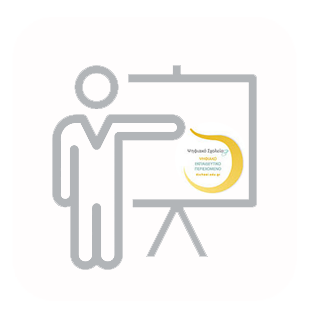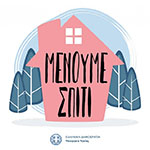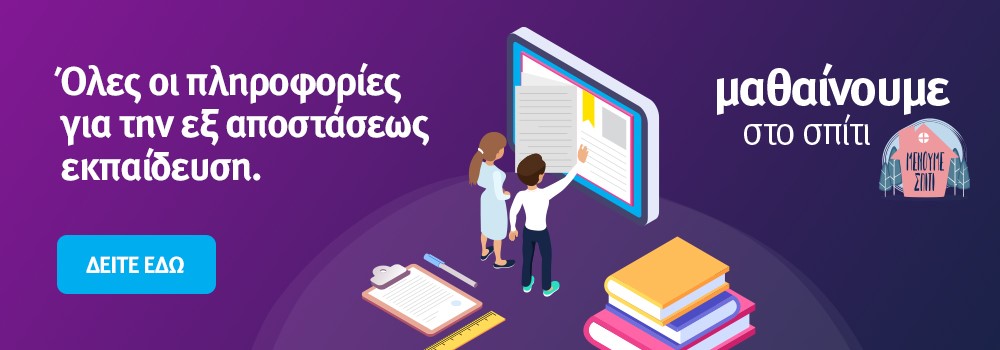Υπενθυμίζουμε ότι η μηδενική χρέωση μέσω κινητής τηλεφωνίας ισχύει για τις ιστοσελίδες που αναφέρονται στο
(δελτίο τύπου του ΥΠΑΙΘ), όπου περιλαμβάνονται τα Διαδραστικά Σχολικά Βιβλία ( e-books.edu.gr ), η κεντρική πύλη αναζήτησης ΦΩΤΟΔΕΝΤΡΟ ( photodentro.edu.gr ) και όλα τα Αποθετήρια Εκπαιδευτικών Πόρων Φωτόδεντρο ( photodentro.edu.gr/lor , photodentro.edu.gr/video , photodentro.edu.gr/edusoft , photodentro.edu.gr/ugc , photodentro.edu.gr/oep , photodentro.edu.gr/i-create ).
Η προβολή περιεχομένου που φιλοξενείται σε εξωτερικά αποθετήρια ή ιστοσελίδες εκτός των παραπάνω ή το άνοιγμα συνδέσμων που οδηγούν σε εξωτερικό περιεχόμενο δεν υπάγονται στη μηδενική χρέωση.

ΠΕΡΙΓΡΑΦΗ ΚΑΙ ΣΤΟΧΟΙ
Περιγραφη
 Think Teen - 3rd Grade of Junior High School (Αγγλικά Γ Γυμνασίου) consists of the
Student's Book, the Workbook, the Teacher's Book and the Audio CD.
Think Teen - 3rd Grade of Junior High School (Αγγλικά Γ Γυμνασίου) consists of the
Student's Book, the Workbook, the Teacher's Book and the Audio CD.
Τhe Student's book comprises 10 Units. At the beginning of each Unit in the Student's Book there is a box summarizing its content and aims which the teacher should consult before teaching the Unit. Each Unit consists of three lessons and self-evaluation. After every second Unit there is a revision test. The Teacher's book contains the answers to the tasks in the lessons, the self-evaluation, the activities in the workbook, the revision tests, as well as in the activities in the differentiated pedagogy "It's your choice".
Αναλυτικο Προγραμμα
Στοχοι
The materials in this course not only follow the instructions of the Pedagogical Institute with respect to the fundamental concepts and the cross-curricular approach, but are also written with a view to furthering students' existing language awareness to a more advanced level of competence which roughly corresponds to B1 Level of the Council of Europe Framework within a year's study.
The aims of this course:
- Developing communicative competence
- Developing cultural awareness
- Developing lifelong learning strategies
- Integrating English with other subjects
ΠΕΡΙΓΡΑΦΗ ΚΑΙ ΣΤΟΧΟΙ ΑΝΑ ΕΝΟΤΗΤΑ ΜΑΘΗΜΑΤΟΣ
Unit 1: What a wonderful world!
 In this Unit you will learn:
In this Unit you will learn:- Grammar Using Present / Past (Simple and Continuous) (Affirmative, Negative, Inter-rogative)
- Reading Skills Scanning for specific information
- Listening Skills Listening for Detail
- Writing Skills Describing feelings and places. (Attitude linking words).
- Vocabulary Holidays and places. Phrases with 'time', word formation - adjectives. Binomial phrases with 'and'
Unit 2: Teen idols
 In this Unit you will learn:
In this Unit you will learn:- Grammar Comparing of the use of Past Simple and Present Perfect
- Reading Skills Summarising the meaning of short texts.
- Listening Skills Listening for detail; listening to recognise speaker's feelings as expressed through specific adjectives
- Writing Skills Organising and linking ideas in a letter.
- Vocabulary Spoken responses in institutionalised expressions.
Unit 3: Thrills and spills
 In this Unit you will learn:
In this Unit you will learn:- Grammar Using verbs of emotion + gerund: like, love, hate, can't stand, fancy, mind. Other verbs which are followed by a gerund: avoid, imagine.
- Reading Skills Learning about different registers in reading texts. Using text information to provide an exchange of information. Understanding implied information in a text.
- Listening Skills Listening for language of suggestion and response.
- Writing Skills Letter writing using information from the listening activity.
- Vocabulary Formulaic expressions: Collocations and compound nouns associated with free time activities. Additional vocabulary exercise with the word 'fun'
Unit 4: Click on-line
 In this Unit you will learn:
In this Unit you will learn:- Grammar Using Pesent Perfect Simple and Present Perfect Continuous
- Reading skills Interpreting meaning in a text in a visual form. Identifying features which link a text
- Writing skills Using connectors to sequence ideas
- Speaking skills Using expressions to show attitude
- Listening skills Identifying speakers attitude. Identifying implied information
- Functions Relating a past action with duration and a present result
Unit 5: The myths we live by
 In this Unit you will learn:
In this Unit you will learn:- Grammar Using the First and Second Conditional forms for hypothetical situations.
- Reading skills Skimming a text to get the general idea; scanning for details
- Listening skills Using knowledge of a situation to help in predicting the contents of a listening text.
- Writing skills Using cohesive devices: because, since, as
- Functions Expressing hypothetical situations for real and unreal situations
- Speaking skills Discussing problems and solutions; giving advice
- Vocabulary Prepositional phrases; Noun endings (ment)_; adjective endings (ic).
Unit 6: Keeping traditions and customs alive
 In this Unit you will learn:
In this Unit you will learn:- Grammar Understanding verb patterns and verb syntax.
- Reading Skills Finding factual information and sharing this with others. Reading to find factual errors in a text
- Listening Skills Listening for incorrect information. Sequencing pictures according to a listening text
- Writing Skills Describing a traditional ceremony
- Vocabulary Verbs of expression and belief; traditions and ceremonies.
- Speaking skills Giving opinions; agreeing and disagreeing with speakers.
Unit 7: Shades of meaning
 In this Unit you will learn:
In this Unit you will learn:- Grammar Using Modal Verbs: could, should, would, might
- Function Giving advice, making suggestions, expressing doubts
- Reading Skills Skimming a text for the general idea
- Listening Skills Listening for implied information. Listening for specific items mentioned in a song
- Writing Skills Reporting about a decision
- Vocabulary Adjectives of feeling; shades and colours.
Unit 8: Food for thought
 In this Unit you will learn:
In this Unit you will learn:- Grammar Using Passive Voice; Uncountable nouns
- Reading Skills Recognising words and expressions which show author's attitude. Reading a text and sequence events in pictures
- Listening Skills Listening for dates and world events. Inferring information from listening text
- Writing Skills Writing a review of a restaurant
- Functions Giving opinion; discussing preferences.
- Vocabulary Food, food sources, socio-economic factors of eating habits
Unit 9: What's the weather like?
 In this Unit you will learn:
In this Unit you will learn:- Grammar Using Reported speech
- Reading Skills Skimming through a text and make brief notes to report to a group ing. Matching photographs to text
- Listening Skills Predicting what the speaker is going to say. Listening for specific words
- Writing Skills Writing a report of events
- Functions Reporting facts
- Vocabulary Weather, climate, energy sources; environmental damage, power resources and energy consumption
Unit 10: Natural phenomena
 In this Unit you will learn:
In this Unit you will learn:- Grammar Using Modal Verbs referring to past time (Perfect simple and continuous)
- Reading Skills Looking for implied information. Reading for detail
- Listening Skills Listening for sequence of events
- Writing Skills Writing about an imaginary situation
- Functions Degrees of possibility and probability; deduction
- Vocabulary Natural disasters; safety; stereotypes. Natural phenomena, noun formation, similes















